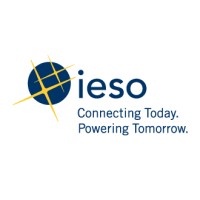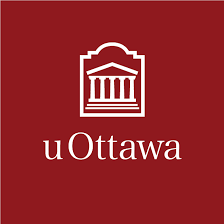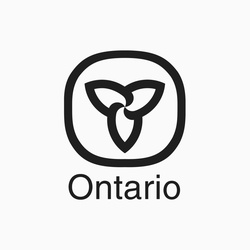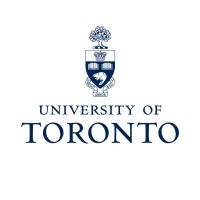
Closed
PollinateTO
Last Update: October 28, 2025
Toronto, ON
Funding for community-led pollinator habitat projects in Toronto
Grant and Funding
At a glance
Funding available
Financing goals
Increasing community impact
Reduce the ecological footprint
Supporting volunteer engagement
See more
Eligible Funding
- Maximum amount : 5,000 $
Timeline
- Receipt of requests is now closed
Eligible candidates
Eligible Industries
- Educational services
- Arts, entertainment and recreation
- Other services (except public administration)
- Public administration
Location
- Toronto
Legal structures
- Financial cooperative
- Non-profit
- Public or Parapublic institution
- Non-financial cooperative
Annual revenue
- All revenue ranges
Organisation size
- All organization sizes
Audience
- Indigenous Peoples
- Black Canadians
- Canadians
- Youth (<40)
Non-profit candidates
Sector of operation
- All industries
Target groups
- All the groups
Revenue structures
- All structures
Scope
- All dimensions
Overview
The PollinateTO grant offers up to $5,000 in funding to support community-led projects that create, expand, or enhance publicly visible pollinator and rain gardens in Toronto. This program funds initiatives such as converting lawns or hard surfaces to pollinator habitats and adding native plants to existing gardens to advance local biodiversity and community engagement.
Activities funded
- Creation of new pollinator gardens or rain gardens in public or highly visible spaces.
- Expansion or enhancement of existing gardens by adding native pollinator-friendly plants.
- Conversion of lawns, boulevards, or hard surfaces into pollinator gardens accessible to the community.
- Establishment of shared community gardens, school teaching gardens, Indigenous education gardens, or boulevard gardens focused on pollinator habitat.
- Development of multiple front yard gardens on the same street or neighbourhood that together form a visible "pollinator pathway."
Eligibility
- The applicant must be a resident-led group (with at least three Toronto residents from separate households), a registered charity, or a non-profit organization.
- The project must directly support the creation or enhancement of publicly-visible pollinator habitat within Toronto.
- Eligible applicant types include community groups and organizations, school groups, student clubs and parent councils, Indigenous groups, faith groups, business improvement areas (BIAs), and not-for-profit organizations.
- Organizations with offices outside Toronto may apply if the proposed project is located within a designated Neighbourhood Improvement Area (NIA) in Toronto.
- Priority is given to projects located in Toronto’s Neighbourhood Improvement Areas (NIAs).
Who is eligible?
- Resident-led groups (with at least three Toronto residents from separate households)
- Neighbourhood or tenant groups
- Community groups and organizations
- School groups, student clubs and parent councils
- Indigenous groups
- Faith groups
- Business Improvement Areas (BIAs)
- Registered charitable organizations
- Not-for-profit organizations (including those with offices outside Toronto, if the project is within a Neighbourhood Improvement Area)
Who is not eligible
- For-profit businesses
- Building and property managers
- Grant making organizations
- Organizations allied with political parties
- Organizations that have previously received PollinateTO funding but have not submitted an Impact Report for their current project
Eligible expenses
- Purchase of planting materials: seeds, perennial plants, native trees and shrubs, soil, compost, mulch, sand, materials for seedlings (trays, pots, potting soil, markers), plant supports.
- Tools and equipment: shovels, rakes, forks, tillers, hoes, pruners, hand tools, wheelbarrows, garden carts, watering cans, hoses, garden gloves, kneepads, supplies to delineate the garden (wood, stones, borders), rental of certain tools or tools via the tool library.
- Construction and landscaping of the garden: materials for raised beds (open bottom), open-bottom storage tanks, materials for rain gardens, materials for permeable walkways (pavers, gravel, wood chips), bags for green waste, delivery fees for materials (up to $100 per delivery), removal of hard surfaces (up to 10% of the grant amount), rental of non-motorized electric equipment.
- Expenses related to education, awareness, and events: fees for speakers, facilitators, elders, and knowledge holders (up to $500 per person), promotional materials (posters, flyers, printing and installation of signs and plant identification), supplies for workshops/events, refreshments for participants (up to $200 per project, excluding bottled water), rental of spaces, insurance for community events, artistic supplies and educational materials (books, guides, educational signs).
- Personnel and labor costs: fees for group members (up to $500 per group), labor costs to prepare and plant the garden (up to 10% of the grant amount), consultant or expert fees (up to 10%), translation, interpretation, volunteer recognition, public transportation costs for participants.
- Administrative fees of the trustee (up to 10% of the grant amount).
Eligible geographic areas
- Toronto (all city neighbourhoods, including Neighbourhood Improvement Areas and Emerging Neighbourhoods)
Selection criteria
- Support from the property owner.
- Equity considerations in project planning and implementation.
- Group experience, history, and track record relevant to the project.
- Ability of the proposal to meet the goals and objectives of the program.
- Readiness of the group to undertake the proposed work.
- Clarity and feasibility of the project timeline.
- Clarity and appropriateness of the project budget.
- Likelihood of generating measurable results and overall likelihood of project success.
- Long-term sustainability of the project.
- Use of strategies and tools to engage and educate the community, especially reaching new audiences.
How to apply
1
Form your group and partners
- Create or join a group comprised of at least three Toronto residents from separate households
- Download and review the Application Questions Summary (PDF or Word format)
- Designate a Group Lead as the main contact
2
Select garden location and get support
- Identify garden locations that are publicly visible, accessible, and have water access
- Obtain a Property Owner Support Letter for each location (not needed for pre-approved City parks)
- Priority for Neighbourhood Improvement Areas (NIAs)
3
Develop project plans and budget
- Choose a project name (distinct from group name)
- Develop a community engagement and education plan
- Plan for long-term maintenance using the Garden Maintenance Plan template
- Prepare a detailed estimated budget using the provided budget template (maximum $5,000)
4
Submit application and documents
- Complete the online application form before the submission deadline
- Upload the required supporting documents: Property Owner Support Letter, proposed budget, photos of garden sites
- Optional: include plant list and maintenance plan if available
5
Application review and notification
- Eligibility screening by City of Toronto staff
- Further review by a committee from various city divisions
- Applicants notified of results and next steps via email
6
Attend orientation and training
- Attend mandatory online orientation session
- Participate in ‘How to PollinateTO’ training program
7
Complete funding agreement and receive funds
- Sign the funding agreement and required declarations
- First funding installment (approx. 90%) is processed
- Trustee organizations manage disbursement and compliance
Additional information
- Upon completion, grant recipients are required to submit an Impact Report, including project photos and communication materials as proof of completion.
- A site visit may be requested by the PollinateTO team during late spring to fall for monitoring purposes.
- Creating a short video (1-2 minutes) showcasing the completed project is optional but encouraged for sharing project outcomes.
- Educational materials and project communications should acknowledge the City of Toronto's support and align with the Pollinator Protection Strategy's principles.
Contacts
pollinateto@toronto.ca
Toronto, ON, Canada
Apply to this program
Frequently Asked Questions about the PollinateTO Program
Here are answers to the most common questions about the PollinateTO. This section explains what the program is, how much funding is available, eligibility requirements, application deadlines, and other important details to help you determine if this grant is right for your business.
What is the PollinateTO?
How much funding can be received?
Who is eligible for the PollinateTO program?
What expenses are eligible under PollinateTO?
Who can I contact for more information about the PollinateTO?
Where is the PollinateTO available?
Who are the financial supporters of the PollinateTO?
Apply to this program
More programs like this

Grant and FundingExpert AdviceOpen
First Nations Community Building Retrofit Program
Independent Electricity System Operator (IESO)Funding and support for on-reserve community energy-efficiency retrofits

Grant and FundingExpert AdviceOpen
Expanded Energy Management Program
Independent Electricity System Operator (IESO)Funding to strengthen facility energy management and efficiency initiatives

Grant and FundingOpen
XLerate Program
Independent Electricity System Operator (IESO)Pay-for-performance funding for large-scale Ontario energy-efficiency projects

Grant and FundingOpen
Court Challenges Program (CCP)
University of OttawaSupports legal actions advancing constitutional and language rights

Grant and FundingClosed
Ontario Anti-Hate Security and Prevention Grant (2025-26)
Government of OntarioSupports Ontario organizations enhancing security against hate‑motivated incidents

Grant and FundingOpen
OTF — Organizational Mentors
Ontario Trillium Foundation (OTF)Supports organizations mentoring grassroots groups to deliver funded projects

Researchers And FacilitiesPartnering and CollaborationGrant and FundingOpen
Artiste en résidence canadien en début de carrière dans le domaine de l'urbanisme
University of Toronto (UOFT)Year-long artist residency exploring key urban issues

Grant and FundingOpen
FPACN Justice Grant Program
Black Opportunity Fund (BOF)Supports Black-led justice and equity initiatives in Canada

Grant and FundingOpen
OTF — Community Building Fund – Capital Stream
Ontario Trillium Foundation (OTF)Supports capital improvements through construction, fixed equipment, and development

Grant and FundingOpen
OTF — Economic Recovery and Resilience Fund
Ontario Trillium Foundation (OTF)Supports Black youth pathways to jobs and entrepreneurship
Sign up to our platform to access the PollinateTO information sheet for free
Get access to 4,000+ programs, practical guides, personalized alerts, and an AI assistant to support your grant applications.